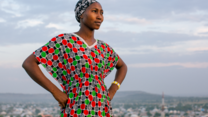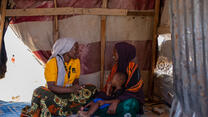In 2017, with funding from the Citi Foundation, the International Rescue Committee (IRC) began an ambitious, bold initiative entitled Resilient Futures. Designed to support the livelihoods and economic well-being of some of the world's most marginalized refugee and forcibly displaced populations, this initiative has now reached more than 6,500 individuals in six countries across Europe, Africa, and the Middle East.
In doing this work, IRC has had a tremendous and unique opportunity to learn and reflect on how to create foundational financial stability and economic opportunities for a highly vulnerable and, sadly, ever-growing population. Today, there are more than 100 million forcibly displaced persons worldwide, including more than 34 million refugees and more than 62 million internally displaced persons (IDPs). IRC teams have worked across exceptionally varied contexts, worked with diverse populations, and done this work through a dynamic and tumultuous time that included a global pandemic, disruptive natural, social, political, and economic shocks in the regions where RF was implemented, and ongoing violence and conflict.
In producing this report, Building Towards Economic Resilience for Conflict-Affected Populations, IRC is interested in sharing what we have learned to spur thinking among a robust community of practitioners, funders, private sector partners, researchers, policymakers, and other key stakeholders. Beyond thinking, the goal of this report is also to inspire action. Within this ecosystem of stakeholders, there is tremendous power to shape how we do this work, to increase its impact, and to offer new approaches to scale and sustainability.
With deep appreciation of Citi Foundation's investment and support, we are hopeful that the impact of Resilient Futures can continue to grow as the lessons and learnings inform the critical work ahead.
To learn more about Resilient Futures, visit https://www.rescue.org/topic/resilient-futures.

